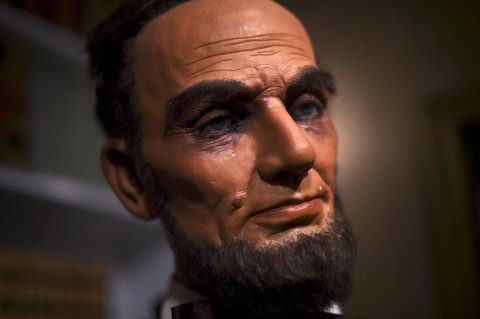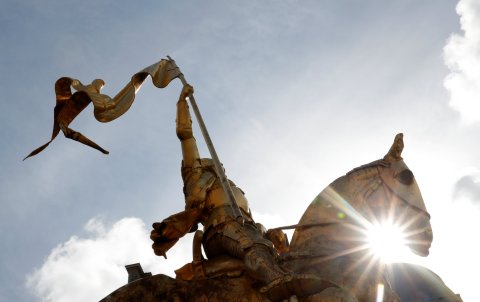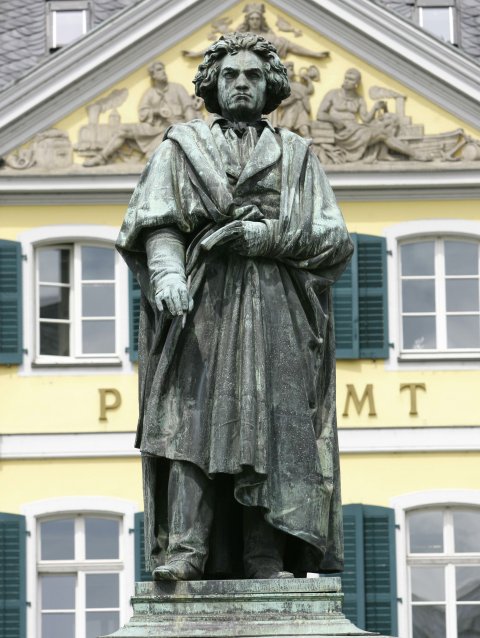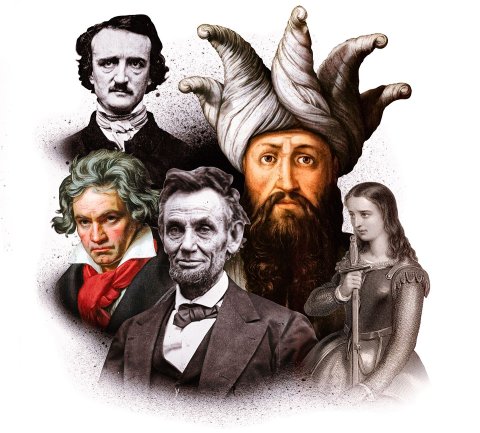For the past 25 years, Philip Mackowiak, a professor (now emeritus) at the University of Maryland School of Medicine, in Baltimore, has hosted a conference about solving the mysterious deaths of historical figures. The gatherings have generated some very intriguing diagnoses for people like Joan of Arc, Abraham Lincoln and this year's selection, Saladin, the first sultan of Egypt. Newsweek spoke to Mackowiak about his obsession with cold cases, which began with the writer Edgar Allan Poe.
What about Poe's death intrigued you?
In 1849, Poe was found in a gutter in Baltimore and died soon after. The presenter in our first conference thought his symptoms were from rabies. Based on the writer's life and medical history, it seemed more likely to me that he died from delirium tremens, a condition stemming from alcohol withdrawal.
Don't we know the cause of death for Abraham Lincoln and Joan of Arc?

Our question surrounding Joan of Arc's death was slightly different. We set up a court to rule on whether she should have been acquitted based on a plea of insanity. Either she was delusional, or she had conversations with representatives of God. Our jury chose to believe the former. Incidentally, Joan of Arc was burned at the stake not because of her professed conversations but because she wore men's clothing.

For Abraham Lincoln, we wanted to know whether he would have survived if he'd had access to modern trauma care. The head of a shock trauma unit concluded that Lincoln may have survived and continued his presidency. At the time, I thought that conclusion was ridiculous—a bullet went through the left side of his head, destroying everything in its path. But after suffering the same wound, Gabrielle Giffords recovered.
What about Beethoven?

Beethoven was ill most of his life. He probably had irritable bowel syndrome as a young man. He began losing his hearing in his early 30s and was totally deaf by 50. Beethoven had a multifaceted illness that included end-stage cirrhosis. When he died, he was coughing up blood and his abdomen was full of acidic fluid. An autopsy revealed evidence of brain atrophy, shriveled auditory nerves and some bony abnormalities. He was just a wreck. Our conference presenter thought he probably had syphilis. It may have been congenital, but we also know that Beethoven was patronizing prostitutes at a time when 10 percent of the European population was thought to have syphilis.
And why Saladin this year?
The strife in the Holy Land right now is not much different from his time; the players are different, but many of the problems are the same. Infighting within Islam was a major problem for Saladin [his full Arabic name was Salah al-Din Yusuf ibn Ayyub], who spent more time fighting other sects than fighting Christians—though when he did turn his attention to them, he crushed the Frankish forces that had controlled Jerusalem for about 80 years.

What was his likely cause of death?
Tuberculous meningitis, based on his headaches and the mental problems he experienced as he became sicker. Shortly before he died, he sweated so much that it went through his mattress and formed a puddle on the floor; that kind of perspiration is also somewhat characteristic of tuberculosis, which was rampant in that area at the time. Our presenter, however, believed Saladin died from typhoid fever.
Who is your subject for 2019?
A religious figure who died of a mysterious illness during the early medieval times. We will have a diagnostician with access to a supercomputer pitted against a doctor crowdsourcing the diagnosis with a network of physicians.















